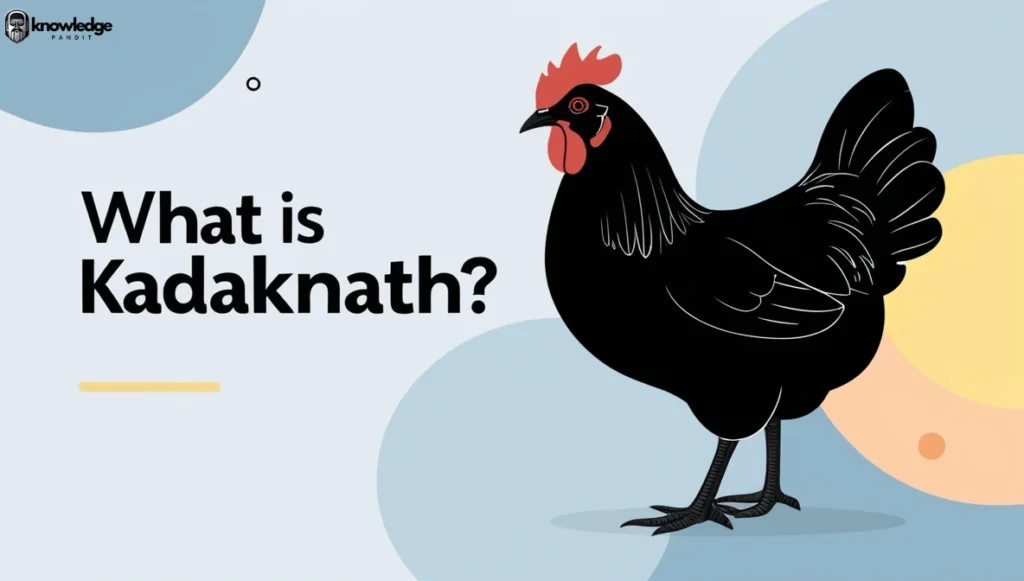Kadaknath, also known as Kali Masi (“fowl having black flesh”), is a unique Indian breed of chicken originating from the Dhar and Jhabua districts of Madhya Pradesh. Kadaknath chicken is renowned for its distinctive black meat. This breed is mostly reared by rural and tribal communities and is renowned for its distinctive black meat, which is highly nutritious and believed to have medicinal properties. The breed gained a geographical indication (GI) tag in 2018, enhancing its recognition and value.
Key Features of Kadaknath
Colour and Appearance:
Kadaknath chickens are highly adaptable and are known for their grey-black appearance, with black pigmentation extending to their beak, comb, wattles, legs, and even their internal organs.
Varieties:
There are three primary varieties: jet black, golden, and pencilled.
Size and Eggs:
Roosters weigh around 1.8–2 kg, while hens weigh between 1.2–1.5 kg. Kadaknath hens lay brownish-pink eggs, each weighing about 30–35 grams, though they are poor setters and rarely hatch their eggs.
Nutritional and Economic Importance
Kadaknath chicken meat is rich in protein, low in fat, and contains essential amino acids and minerals. This makes it a premium choice in the poultry industry, contributing to its increasing demand and high market value.
Threat of Extinction
Overconsumption and limited breeding practices have led to a sharp decline in Kadaknath’s population. To address this, the Madhya Pradesh government initiated breeding programs involving economically disadvantaged families, providing financial support to sustain the breed.
Scams and Challenges
With the breed’s rising popularity, scams involving fake Kadaknath birds have emerged, deceiving both farmers and consumers. This highlights the need for regulatory measures to protect the breed’s authenticity and the interests of stakeholders.
Kadaknath chicken remains a prized breed due to its rarity, health benefits, and cultural significance. Efforts to preserve and promote this unique breed are essential to sustaining its legacy.




